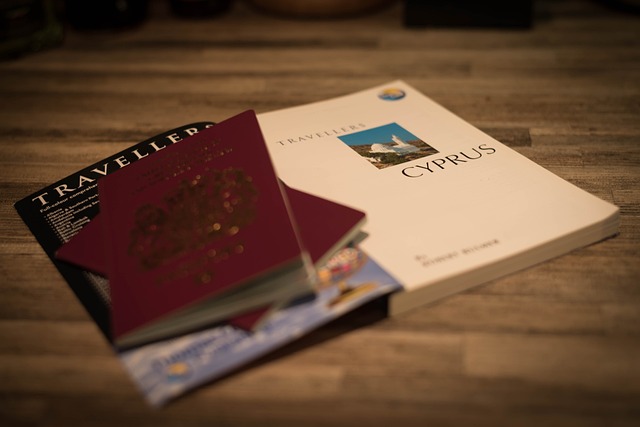Chefs in the UK are leveraging local recipes from cookbooks and culinary guides to connect with customers, preserve cultural heritage, and enhance dining experiences. Translation services play a vital role in making these resources accessible globally, facilitating cultural exchange, and ensuring authentic interpretation of traditional dishes. By combining regional ingredients, techniques, and stories, chefs create innovative menus that highlight the UK's diverse culinary landscape, appealing to both domestic and international audiences.
In the dynamic culinary landscape of the UK, chefs are increasingly recognizing the power of localized recipes to create unique dining experiences. This article delves into the significance of embracing regional cuisine, exploring how UK cookbooks preserve culinary traditions and translation services bridge cultural gaps in cooking. We examine strategies for engaging chefs with region-specific ingredients and techniques, creating tailored culinary guides to satisfy local palates. Discover the benefits of professional translation for cookbook projects, inspiring success stories, and future trends shaping localized recipe development.
- Understanding the Importance of Localized Recipes for Chefs in the UK
- The Role of UK Cookbooks in Preserving Culinary Traditions
- How Translation Services Can Bridge Cultural Gaps in Cooking
- Engaging Chefs with Region-Specific Ingredients and Techniques
- Creating Culinary Guides Tailored to Local Palates
- Benefits of Using Professional Translation for Cookbook Projects
- Success Stories: Chef Collaborations Leading to Culinary Innovation
- Future Trends in Localized Recipe Development
Understanding the Importance of Localized Recipes for Chefs in the UK

In the dynamic culinary landscape of the UK, chefs are increasingly recognizing the value of localized recipes in shaping their creations. With a rich and diverse food culture, embracing regional specialties is not just a culinary trend but a strategic move to connect with locals and tourists alike. Localized recipes offer chefs an opportunity to explore unique ingredients, traditional cooking methods, and authentic flavors that make each region distinct. This connection to place fosters a sense of belonging and encourages diners to embrace the local experience.
For chefs in the UK, incorporating localized recipes into their menus can be facilitated by utilizing available resources such as UK cookbooks and culinary guides. These publications provide valuable insights into regional cuisines, offering recipes that have been handed down through generations. Moreover, translation services play a pivotal role in this process, ensuring that chefs can access and understand these traditional dishes, thereby enhancing their ability to interpret and adapt them for modern palates while preserving cultural heritage.
The Role of UK Cookbooks in Preserving Culinary Traditions

UK cookbooks play a pivotal role in preserving and promoting culinary traditions across different regions, making them invaluable resources for both chefs and food enthusiasts. These cookbooks offer a unique insight into the diverse gastronomic landscape of the UK, showcasing regional specialties that have evolved over generations. By providing authentic recipes, they ensure that traditional cooking methods and ingredients remain accessible and celebrated. With a focus on local produce and heritage, UK cookbooks foster a connection between modern chefs and the rich culinary history of their regions.
Moreover, these publications often include informative introductions about each area’s food culture, allowing chefs to understand the context behind the recipes. This cultural knowledge, coupled with practical instructions, encourages professionals to create dishes that not only taste authentic but also resonate with contemporary tastes. With the help of translation services for UK cookbooks and culinary guides, chefs from various backgrounds can easily access this wealth of information, fostering a global exchange of culinary ideas while preserving local traditions.
How Translation Services Can Bridge Cultural Gaps in Cooking

In a world where cuisine is a significant aspect of cultural identity, understanding local recipes is crucial for chefs aiming to connect with their community. This is where translation services play a vital role in bridging the gap between culinary traditions and modern gastronomic practices. When it comes to the UK, a rich tapestry of regional dishes and cooking styles exists that are best explored through authentic interpretations. Professional translation services can help chefs navigate this culinary landscape by providing precise translations of traditional recipes from UK cookbooks and culinary guides.
By utilizing these services, chefs can accurately convey the nuances and unique ingredients of local dishes to their customers. This not only enhances the dining experience but also fosters a deeper appreciation for the diverse cultural heritage found in UK cuisine. Moreover, translation ensures that culinary tours, workshops, and events featuring traditional recipes are accessible to a wider audience, promoting cultural exchange and understanding through the universal language of food.
Engaging Chefs with Region-Specific Ingredients and Techniques

Engaging chefs with region-specific ingredients and techniques is a powerful way to elevate culinary experiences in the UK. By tapping into local produce, chefs can create dishes that reflect the unique flavors and history of their areas. This not only attracts food enthusiasts but also fosters a deeper connection to place. For instance, using seasonal fruits and vegetables from nearby farms ensures freshness and promotes sustainable cooking practices. Moreover, embracing traditional preparation methods and regional cooking styles through UK cookbooks and culinary guides can offer a rich cultural exchange.
Translation services play a vital role in this process, especially in diverse areas with various ethnic backgrounds. They enable chefs to communicate effectively with suppliers and understand the nuances of different ingredients. This collaboration results in innovative menus that delight diners and tell stories of the region’s culinary heritage. Ultimately, engaging with local recipes enhances the overall dining experience, making it more authentic and memorable for visitors and locals alike.
Creating Culinary Guides Tailored to Local Palates

Chefs are more likely to engage with recipes that resonate with local palates, flavors, and cultural nuances. Creating culinary guides tailored to specific regions can be a powerful tool for chefs to connect with their communities. These guides should highlight unique ingredients, traditional cooking methods, and dishes that reflect the diversity of the area’s culinary heritage. By incorporating these elements, chefs can craft dishes that not only taste authentic but also tell a story about the region’s history and culture.
In the UK, where culinary traditions vary widely from one region to another, cookbooks and culinary guides play a significant role in preserving and promoting local cuisines. Translation services are essential for making these guides accessible to a broader audience, both within the UK and internationally. Accurate translations ensure that recipes, techniques, and cultural contexts are conveyed accurately, fostering a deeper appreciation for the diversity of British cuisine.
Benefits of Using Professional Translation for Cookbook Projects

Professional translation services play a vital role in bringing UK cookbooks and culinary guides to life, especially when targeting diverse audiences. With food being an universal language, recipes have the power to connect people across cultures. However, accurate translation is essential to ensure that these connections are made effectively.
Cookbooks and culinary guides often contain not just ingredients but also cultural nuances, cooking techniques, and regional variations. Skilled translators with a passion for cuisine can capture these subtleties, preserving the essence of each dish while adapting it for different languages. This ensures that readers from various linguistic backgrounds can follow recipes accurately, appreciate the original culture’s culinary traditions, and successfully recreate dishes in their own kitchens. Professional translation services contribute to creating inclusive food experiences, promoting cultural exchange through the universal language of taste.
Success Stories: Chef Collaborations Leading to Culinary Innovation

In the realm of culinary innovation, chef collaborations have proven to be game-changers, fostering a vibrant tapestry of flavors and ideas. One notable success story involves a renowned UK chef who partnered with local farmers and food experts to create a cookbook celebrating the region’s unique produce. By translating traditional recipes into modern dishes, this collaboration not only enhanced the local culinary landscape but also garnered international recognition. The resulting cookbook became a best-seller, attracting attention from both critics and food enthusiasts worldwide.
This partnership exemplifies how engaging chefs with localized recipes can revolutionize dining experiences. Through cultural exchange and creative synergy, chefs incorporate regional ingredients and techniques, elevating traditional cuisines to new heights. Moreover, these collaborations often lead to the development of innovative culinary guides that cater to diverse palates, ensuring that the UK’s rich gastronomic heritage is preserved and shared globally, aided by translation services for international appeal.
Future Trends in Localized Recipe Development

As we look ahead, several future trends in localized recipe development are set to shape the culinary landscape in the UK. The increasing demand for authentic, locally sourced ingredients is driving a shift towards traditional cooking methods and seasonal dishes, as chefs seek to reconnect with their roots. This trend not only promotes sustainable food practices but also creates a unique dining experience for customers.
Additionally, the rise of digital platforms and translation services offers exciting opportunities. UK cookbooks and culinary guides are becoming more accessible globally, allowing diverse audiences to explore regional specialties. Translation services play a crucial role in breaking down language barriers, ensuring that recipes and cooking techniques are accurately conveyed, fostering a genuine connection between cultures through food.
In conclusion, engaging chefs with localized recipes through UK cookbooks and culinary guides has become a powerful tool for preserving culinary traditions while fostering innovation. Translation services play a pivotal role in bridging cultural gaps in cooking, enabling chefs to explore region-specific ingredients and techniques. By leveraging professional translation for cookbook projects, culinary experts can create tailored guides that resonate with local palates, enhancing the overall dining experience. Success stories of chef collaborations bear testament to this trend’s transformative potential, and as we look ahead, localized recipe development will continue to revolutionize the UK culinary landscape.
